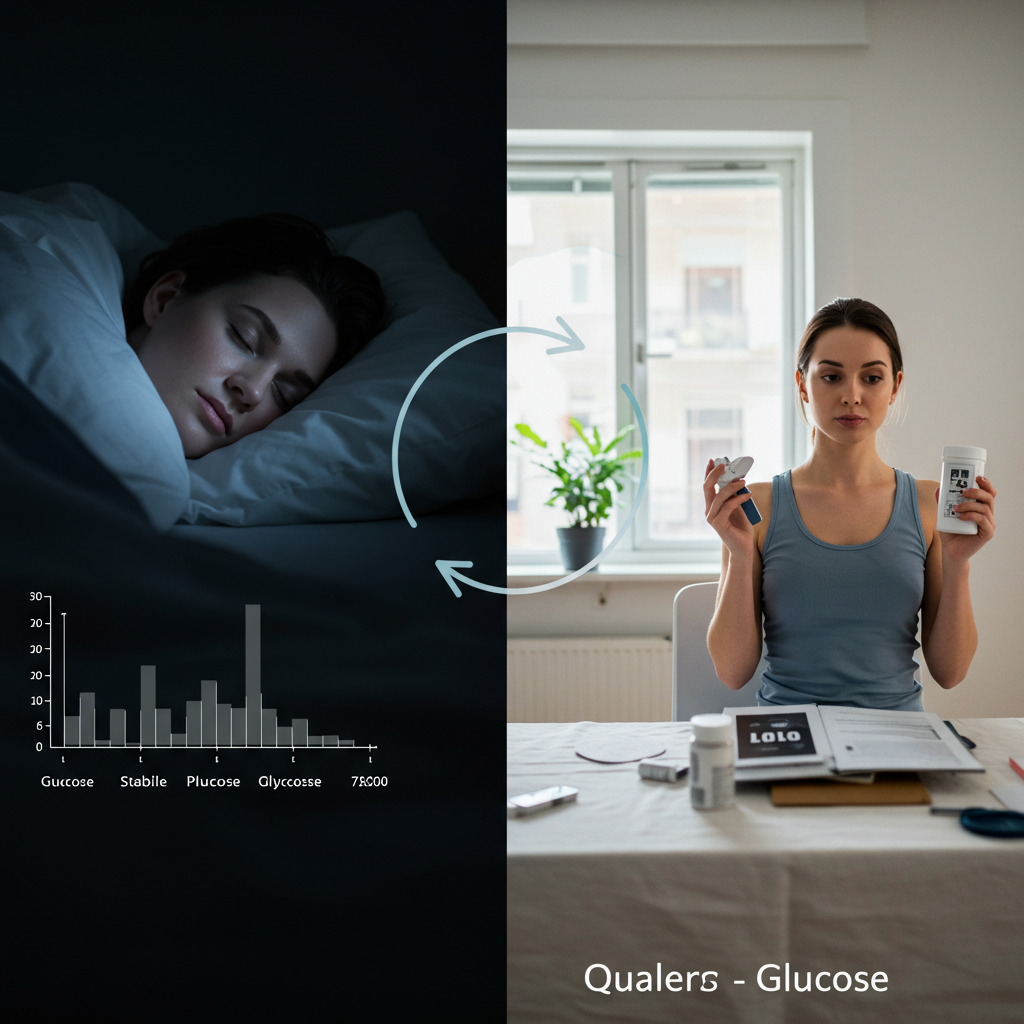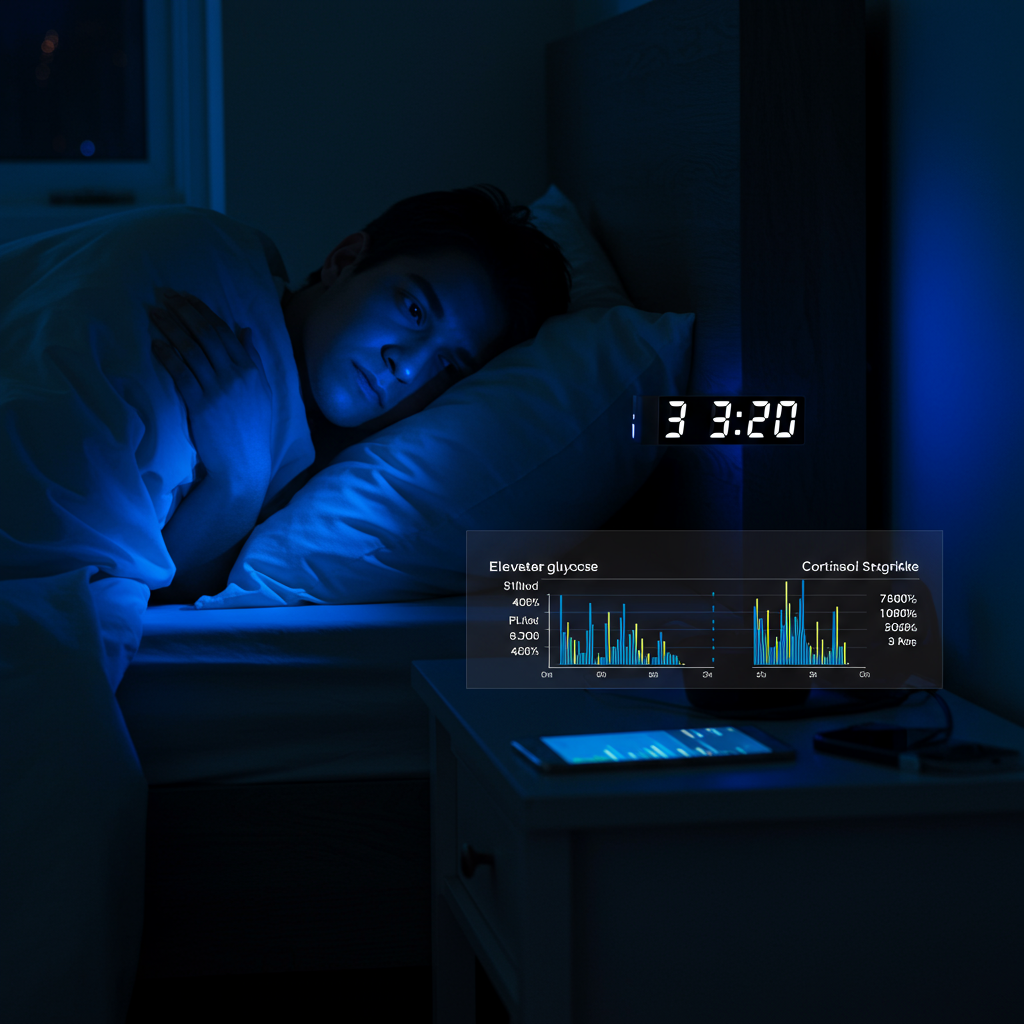Sleep and Blood Sugar: A Two-Way Street - Why Your Glucose Levels and Sleep Quality Are Intimately Connected

Sleep—that essential, restorative process we spend roughly a third of our lives doing—plays a far more critical role in metabolic health than most people realize. As someone who has spent years investigating the intersection of longevity, metabolism, and disease prevention, I've become fascinated by the bidirectional relationship between sleep and blood glucose regulation. This connection isn't just interesting from a scientific perspective; it has profound implications for how we should approach both diabetes management and sleep hygiene.
The Vicious Cycle: How Poor Sleep Disrupts Glucose Metabolism
Even a single night of insufficient sleep can significantly alter how your body processes glucose. When sleep-deprived, healthy individuals often display temporary insulin resistance that mimics pre-diabetic states. This happens through several mechanisms:
First, sleep deprivation increases cortisol levels, our primary stress hormone. Elevated cortisol promotes gluconeogenesis—the liver's production of new glucose—which raises blood sugar levels even when you haven't eaten. Simultaneously, your muscle and fat cells become less responsive to insulin, meaning glucose remains in your bloodstream longer.
Second, sleep loss disrupts the balance of hunger hormones—increasing ghrelin (which stimulates appetite) while decreasing leptin (which signals fullness). This hormonal imbalance not only makes you hungrier but specifically triggers cravings for carbohydrate-rich, calorie-dense foods that further challenge glucose control.
Perhaps most concerning is how chronic sleep deprivation affects pancreatic function. Studies show that repeatedly getting less than 6 hours of sleep per night can reduce insulin secretion by up to 30% in otherwise healthy adults. For those already at risk for type 2 diabetes, this represents a significant acceleration toward disease development.

The Reverse Effect: How Blood Sugar Impacts Sleep Quality
The relationship works in reverse too. Unstable blood glucose levels—whether too high or too low—can significantly disrupt sleep architecture.
Hyperglycemia (high blood sugar) often leads to increased urination, including during the night (nocturia), fragmenting sleep. It can also cause symptoms like thirst and headaches that make falling and staying asleep difficult. On a neurological level, chronically elevated glucose can damage the nerves that regulate sleep-wake cycles, contributing to conditions like sleep apnea and restless leg syndrome, which are disproportionately common in people with diabetes.
Hypoglycemia (low blood sugar) presents its own challenges, especially during sleep. When blood glucose drops too low during the night, the body releases counter-regulatory hormones like adrenaline and cortisol to raise blood sugar levels. This hormonal response can abruptly awaken you, causing night sweats, heart palpitations, and anxiety that make returning to sleep difficult. Many people with diabetes who experience nocturnal hypoglycemia report poor sleep quality and excessive daytime fatigue.
Breaking the Cycle: Strategic Interventions for Better Sleep and Glucose Control
Understanding this bidirectional relationship offers multiple intervention points. Here are evidence-based approaches to break the cycle:
Time-restricted eating: Finishing your last meal at least 3 hours before bedtime helps prevent nocturnal blood sugar spikes that could disrupt sleep. This aligns feeding periods with your body's natural circadian rhythms and gives your system time to process nutrients before sleep.
Strategic evening meal composition: If you must eat closer to bedtime, prioritize protein and healthy fats over carbohydrates. Adding a small amount of apple cider vinegar (1-2 tablespoons in water) before carbohydrate-containing meals can blunt post-meal glucose spikes by 20-30%.
Consistent sleep schedule: Maintaining regular sleep and wake times—even on weekends—helps regulate your body's internal clock, improving both sleep quality and metabolic function. Aim for 7-9 hours of sleep per night.
Morning sunlight exposure: Getting 10-30 minutes of natural light within an hour of waking helps reset your circadian rhythm, which governs both sleep timing and metabolic processes. This simple habit can improve nighttime sleep quality and enhance insulin sensitivity during the day.

Continuous glucose monitoring (CGM): For those with diabetes or pre-diabetes, CGM technology can reveal how specific foods, stress, and sleep patterns affect individual glucose responses. This personalized data allows for precise interventions that break the sleep-glucose dysregulation cycle.
The relationship between sleep and blood glucose regulation isn't merely correlational—it's causal in both directions. By strategically addressing both components, we can create a positive feedback loop where better sleep enables better glucose control, which in turn promotes higher quality sleep.
As with many aspects of metabolic health, small, consistent habits often yield the most significant long-term benefits. Whether you're currently managing diabetes or simply interested in optimizing your metabolic health span, paying attention to this two-way street may be one of the most powerful interventions at your disposal.
References:
-
Spiegel K, Knutson K, Leproult R, Tasali E, Van Cauter E. Sleep loss: a novel risk factor for insulin resistance and Type 2 diabetes. J Appl Physiol. 2005;99(5):2008-2019.
-
Tasali E, Leproult R, Ehrmann DA, Van Cauter E. Slow-wave sleep and the risk of type 2 diabetes in humans. Proc Natl Acad Sci USA. 2008;105(3):1044-1049.






